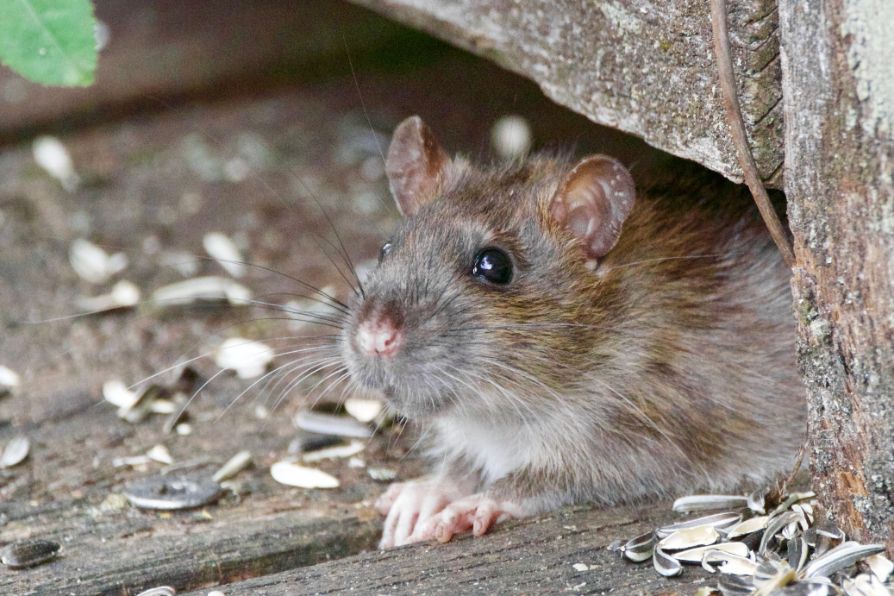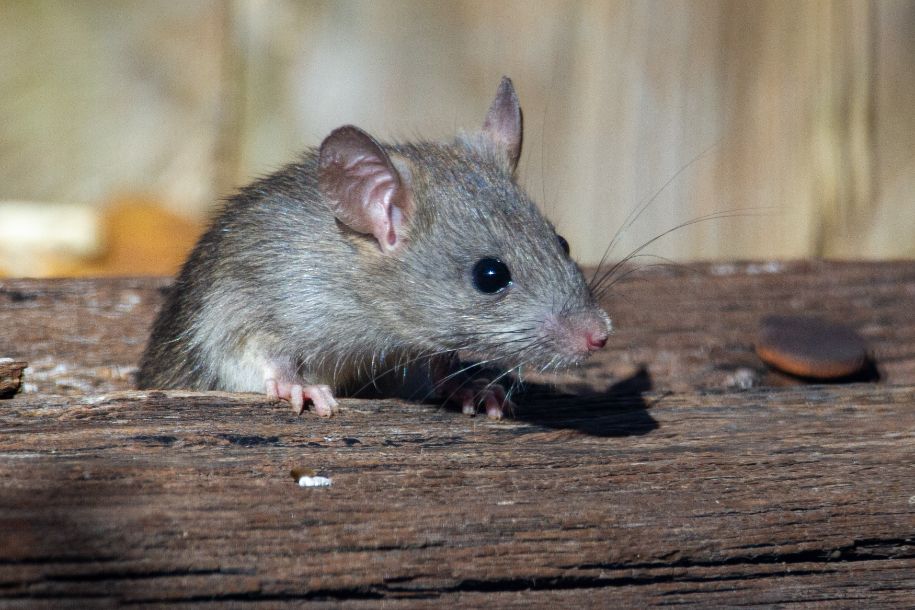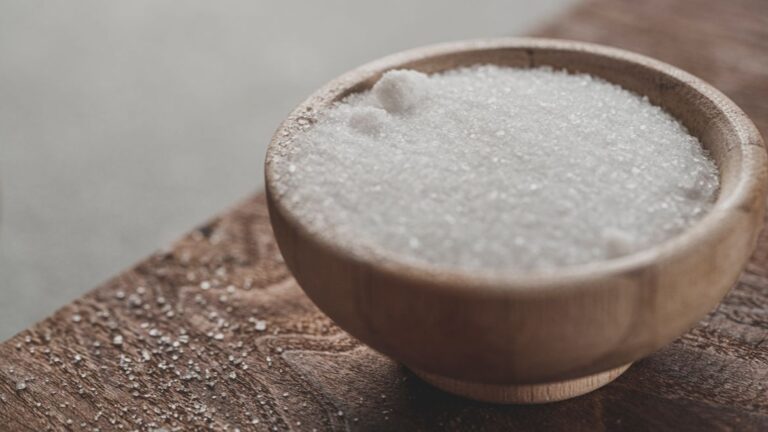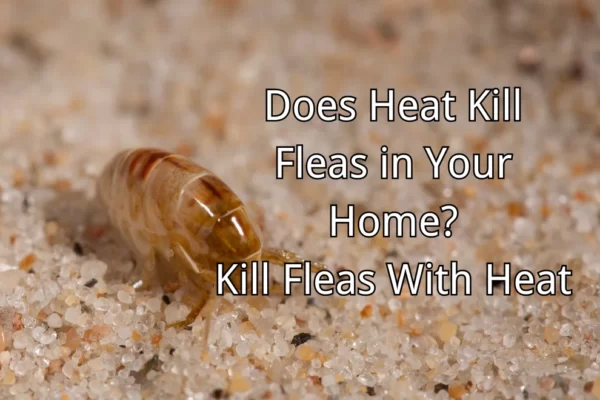One of the main issues facing American homeowners is rat infestation. 14 million Americans, according to data currently available, are households currently facing the wrath of rodents such as rats.
In addition to being an annoyance, rats can spread diseases that endanger the health of your loved ones. Rats can also cause damage because they like to chew on electrical wiring, insulation, and walls. You must take action right away to get rid of rats as a result of this.
Since salt can cause any living thing to become dehydrated when consumed in sufficient amounts, it is used to kill rats. The water and moisture in a rat’s body will be drawn out if you can get it to consume enough salt. Is it effective at killing rats? For more information, please continue reading.
What Are Rats Requiring To Survive?
- Water: Rats can continue to live for a month or longer without directly ingesting water. As a result, they drink more water as they digest their food. If they need water to drink, they can find it in pet bowls, drains, condensation on walls, or inside pipes.
- Food: Due to their omnivorous nature, these pests will consume anything in their path. Rats hunt through trash and food scraps. They can also kill small animals like lizards and birds for food.
- Shelter: Grasses, weeds, and other plants provide shelter for rats in the wild. Rats, on the other hand, can find shelter in your house behind the walls, underneath the furniture, or in the unoccupied, dark corners.
Rat Infestation Signs In Your Home
To determine whether you have a rat infestation in your home before getting rid of rats, read on. The signs of a rat infestation in your home are listed below to aid you in this.
Smears And Rat Droppings
In and around your home, rats might leave droppings. On their paths, you can see small, dark droppings in the form of pellets. Rats have poor vision, so they may make established pathways in the walls. Smears of grease and other materials may also be applied.
Strange Sounds And Odors
Remember that rats can smell strongly of ammonia. Since they can make noises while moving around your homes, such as scratching, squeaking, and rustling, these pests can also be quite loud. There might be a rat infestation on your property if you notice these symptoms.
Damage From Rats
If you notice damage to your possessions, that may be a sign of a rat infestation. They can therefore gnaw on paper, furniture, storage containers, electrical cords, and leftover food. With this, they can also spread disease to you and your family by leaving urine and feces in your home.
Rat Footprints

If you notice foot and tail prints in the areas where the rats travel, you may have a rat problem in your home. When you notice these symptoms, it’s time to call a pest control business right away.
Do Rats Eat Salt?
Other than what is naturally present in food, sodium chloride is not frequently consumed by wild rats.
They eat very little salt because they get all the sodium they require from food and don’t seek out additional salt deposits, according to the American Psychological Association.
Rats, who are naturally scavengers, will consume almost any organic material they can find, including leftover food and animal waste. Rats will therefore consume salt if it is combined with tasty food.
Rats, on the other hand, choose to eat meals that are lightly salted as opposed to meals that are heavily salted. Their natural diet does not contain a lot of salt, which can be fatal if consumed in excess.
Is Salt Bad For Rats?
Salt chloride in excess can be toxic. At the molecular level, rats only require 0.03% to 0.05% sodium per day to support healthy growth and development, according to the Journal of the American Heart Association.
Anything above this point could harm a rat’s internal organs and prove fatal. Rats that consume too much sodium become dehydrated and develop high blood pressure.
Also, a high salt intake affects various physiological effects, including:
- Renin secretion
- Vascular adaptation
- Plasma aldosterone
High salt consumption has been linked to oxidative stress and hypertension, according to Eastern Virginia Medical School. Diabetes is accelerated by a diet high in salt, which also causes hypertension.
Kidney glomerulosclerosis, an untreatable disease in rats, is brought on by an excess of salt. The risk of the affected rat(s) dying from kidney failure increases as a result of the inflammation of the kidneys.
Dehydration is the most typical result of high salt intake in rats. Rats who consume too much salt will eventually become dehydrated and pass away if they don’t replenish the lost water.
Rats could therefore be killed with salt, but only if they ate a lot of salt. Therefore, if rats are to consume enough of it, it must be combined with foods that they enjoy.
Does Salt Kill Rats?
As previously stated, you must add salt to the bait and encourage rats to eat enough of it. As a result, it’s only marginally effective. Rats are aware that consuming a lot of salt can be fatal. Sodium chloride is so distinctive that it’s difficult to cover up, even when you use other flavors.
Advantages And Disadvantages Of Using Salt To Kill Rats
Advantages
- It’s cost-effective: One of the most economical ways to keep rats away is to use salt as a deterrent. Since salt is typically readily available in homes, you don’t need to buy any other items.
- It’s safe: As we’ve already mentioned, poisoning rats with rat poison can be fatal, especially if you have pets at home like dogs or cats. Keep these away from children as well, as is generally advised. However, salt is not as deadly to your cat or dog as it is to a rat, and since it is a condiment that is already present in your home, using it makes a lot of sense.
Disadvantages
- It kills rats slower: The same cannot be said about salt, but an over-the-counter rat poison will work quickly. Although salt is unquestionably effective, it can take up to 24 hours for the rat to fully respond to it. Salt might also be ineffective in areas with large rat populations. If you don’t take the proper action, your home might soon be overrun with rodents because rats have a tendency to breed quickly and in large numbers.
- Water defuses the salt’s efficiency: Rat removal can definitely be started by using salt in the proper proportion with your bait. You must, however, make sure that there is no water nearby. Rats can largely mitigate the effects of salt by consuming water if it is nearby.

How Can Salt Be Used To Get Rid Of Rats In The Home?
The process of killing rats requires patience, and this starts with choosing a salt:
- Table salt: Contains sodium chloride, which can be toxic to rats in large amounts
- Epsom salt: has an unpleasant taste and contains magnesium sulfate.
Once you’ve made your selection, here’s how to set up rat bait traps with salt:
- Search your home for any rat holes and nests
- Plug and obstruct any gaps, so rats can’t escape fetching other food
- Mix large amounts of salt with foods that rats enjoy (like peanut butter) as a lure
- Place the formulated bait near their nests and along paths that rats commonly frequent
- Restrict open sources of water in the home to prevent rats from rehydrating
- Store all foods appropriately in airtight metal or glass containers
Rats won’t have many options besides consuming the salted bait because access to food and water will be restricted. Their organs will be targeted by the extra sodium they ingested, and they will die in two to three days.
Rats can go about four days without eating, so it will take some time before they become desperate enough. Dehydration and organ failure won’t occur right away after they eat the bait; they’ll need more time.
Other Ways To Get Rid Of Rats Quickly
Inspect Your Home
Examining your neighborhood is the first step in getting rid of rats in your home. Rats can only be found through a thorough home inspection. Pay attention to any foundation cracks, broken drains, gaps in the vents, or cracked garage doors that could serve as pest access points.
Other potential access points and appliance lines can also be examined. Traps can be set up and entry points sealed once you are aware of the access points.
Sealing The Gaps
Sealing cracks in the exterior and interior walls of your home is another method for preventing a rat infestation. For efficient results, you can fill the gaps with metal kick plates, wire wool, caulk, and cement.
Trapping
Rat removal can also be achieved through the use of traps. It is a non-poisonous method of rat population control. Bananas, apples, peanut butter, unsalted seeds, and apples are all acceptable baits.
Keep Cleanliness
Rats adore hiding spots and safe havens. Cleaning up your home will help you get rid of their hiding places. Clear the clutter from your house and move anything close to the walls. Keep the garbage and food in closed containers. Make sure your drains and pipes are kept clean.
Natural Deterrent Methods
To get rid of rats in your house, you can also favor natural deterrent strategies. Rat holes and openings can be covered with crushed pepper.
Rats’ nasal passages and lungs may become irritated by it. They might be deterred from returning to your home by it.
Additionally, you can sprinkle cayenne pepper, peppermint oil, cloves, or black pepper on the outside of your home or along the foundation’s line. In the interim, if you discover that these organic remedies are ineffective, you can contact a reputable pest control business for assistance.
Read More: Can Rats Climb Walls: How To Stop Them





